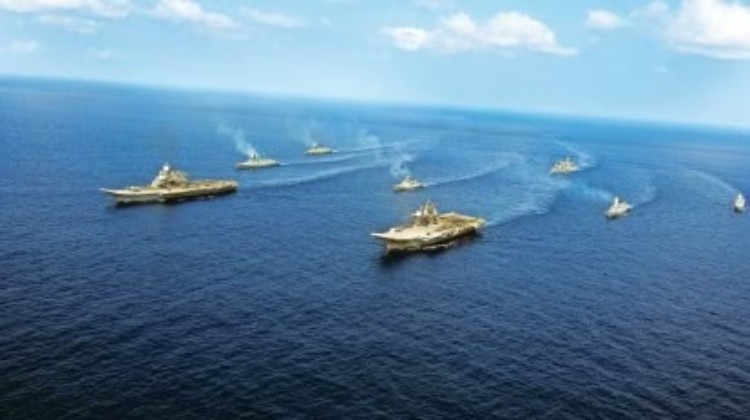
Disruptions in Red Sea route likely to raise freight and forwarding cost by 25-30%
NEW DELHI : Sustained disruptions in the Red Sea route is likely to raise the freight and forwarding (F&F) cost by 25-30% for corporates largely dealing in international trade, a report by credit ratings agency Ind-Ra said on February 9. Moreover, the working capital cycle is likely to aggravate by 15-20 days, and the impact could be higher for sectors such as agriculture and textiles, report said.
The ongoing disruptions along the Red Sea route may raise freight and forwarding costs for businesses engaged in international trade by 25-30%, according to India Ratings and Research (Ind-Ra), a subsidiary of the Fitch Group.
The rating agency said the working capital cycle is also likely to worsen by 15-20 days, particularly hurting agriculture and textiles industries due to ongoing trade issues amid the Red Sea crisis. Working capital cycle refers to the time interval between payments made to suppliers and the revenue received from sales.
The crisis arose after Yemen’s Houthi group launched attacks, using drones and missiles, on commercial ships at the southern end of the Red Sea. As a result, many logistic companies have suspended their operations in the region and are taking longer routes to reach their destinations in the Middle East and Europe.
The report also stated that pressures on cash flow, although moderate for large entities, will increase borrowings, especially for sectors such as iron and steel, auto and auto ancillaries, chemicals and textiles, which have seen a year-on-year rise in net leverage in the first half of the current fiscal.
“The challenge is significant for the entities having low value addition, therefore thin margins. Although large entities have adequate elbow room to accommodate such incremental cost, delays and disruptions in supply chains will be key factors to watch for,” the report said quoting Soumyajit Niyogi, director, core analytical group, Ind-Ra.
For medium-sized entities, the challenge is two-fold, both cost and supply, and it will also impact their working capital cycle.
“These entities have not benefited much from the softening of commodity prices, as free cash flow has remained sluggish for most of them,” he stated.
The initial reaction can be seen in freight rates rising by 150% in the past 45 days, the rating agency said.
The route constituted 40% of the total oil imports and 24% of the total exports during April to October 2023, it said.
Major shipping lines have rerouted vessels around the Cape of Good Hope, which has increased time and costs, impacting both exports and imports, the agency said.
This detour adds 12-15 days to voyages on a business-as-usual basis, which means there could be a further delay owing to any sudden operational challenges, it said.
As much as 80% of India’s merchandise trade with Europe passes through the Red Sea, with key products such as crude oil, auto & auto ancillaries, chemicals, textiles and iron & steel being affected.

